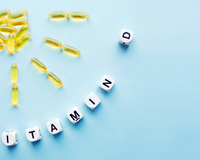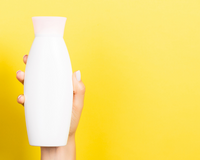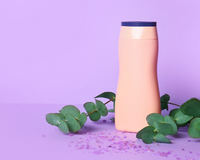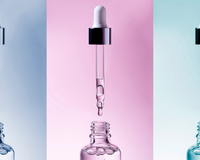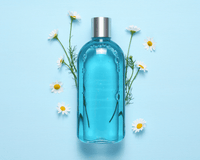Before we look at the best anti aging retinol, we should look at its function. It is a condition that helps preserve skin health in diet, in addition to anti aging therapies. A healthy diet, exercise, and lots of water are all beneficial to one's skin. Environmental factors such as excessive chemical usage, UV rays, smoking, and skin dryness all have an impact on the structure of the skin. It is also believed that anti-aging therapy would aid in the regulation of hormones and the treatment of illnesses. Due to their content, they can treat more than one thing.
The body is a whole, and all structures are linked. As a consequence, we examine numerous factors at the same time. A hectic lifestyle, a poor diet, and a sedentary lifestyle all contribute to our skin issues. We regenerate cells and slow the aging process by using anti aging therapies. Before beginning anti aging therapies, the individual must have a general health assessment. It computes vitamin, hormone, and mineral levels in the body. We also consider diet and maintain a healthy lifestyle.
What is Retinol?
Skincare enthusiasts are well aware of this, but retinol is a kind of vitamin A included in many anti aging treatments, and skincare professionals see it as the gold standard for treating wrinkles and acne. When retinol is broken down into retinoic acid on the skin, it works as an antioxidant, assisting in the repair of skin damage as well as the prevention of premature aging and acne. We've even observed it boost collagen production while also brightening and exfoliating the face.
You do not even need to see a dermatologist to obtain the components. Retinols are a form of vitamin A known as a retinoid, and many retinoids, such as Retin A, are only available with a prescription. Retinols, on the other hand, are a lesser type of vitamin A. (which means they can be sold over the counter). Retinol is totally safe to use on all skin types, contrary to popular assumptions. It is true that it can aggravate diseases such as eczema. If you use the wrong type (i.e., it's too harsh), and virtually all of our experts believe that you should not use it if you're pregnant or nursing, but if you start a miscarriage. And gradually include retinol into your skincare routine.
While retinol is milder than prescription retinoids, finding the appropriate one for your skin, especially if you're hypersensitive, may be challenging. We asked nine doctors about the best over the counter retinol treatments for each skin type in order to identify effective formulations that do not cause redness or peeling. Here are some recommendations.
- Retinol Cream and Its Skin Care Benefits
Your skin's collagen production will rise when using a retinol cream. This is useful in detecting your subsequent lack of flexibility. Because firmness is directly related to collagen production, you're getting a potent vitamin. The resilience of your skin to wrinkles rises.
- It aids in the reduction of blemishes. It is useful for leveling out uneven tones.
- They add to the general image's recuperation.
- It is commonly used in conjunction with a serum to remove freshly developed fine wrinkles.
- Retinol will help the skin's cell regeneration and healing significantly.
- It protects against free radical damage.
- When Should You Start Using Retinol? When Should You Start Using Retinol?
In general, the age at which retinol should be used can be chosen to coincide with the onset of moisture and firming loss. From the age of 30-35, you may purchase retinol cream by assessing the overall health of your skin. In dermatological disorders, cell regeneration can occasionally be delayed or disturbed. If your doctor has suggested you to start taking retinol sooner, you can do so. This will be crucial when the rate of recuperation has to be accelerated.
- Retinol Cream for Sensitive and Dry Skin
The application circumstances of retinol cream for dry and sensitive skin should be taken into consideration. On rejuvenate your skin and minimize its sensitivity, use it to pre cleaned skin. During the cell regeneration process, retinol might cause your skin to become more dry. With this sensitivity, you should use a retinol cream.
- The Role of Retinol Cream in Acne Treatment Supplements
Retinol is also extensively utilized in dermatological treatments for acne therapy. Because retinol creams also assist to decrease sebum production and acne development.
AlphaRet Night Cream by SkinBetter Science
It's the most costly retinol on our list, but four doctors we talked with all said it's well worth the money, especially if you're attempting to target fine lines and wrinkles or have skin issues. Skin sensitivity Retinols are irritating to sensitive skin. It has, however, been specifically designed to be tolerated by nearly all varieties of leather. This is medical grade, yet it is available without a prescription. One doctor adds, I seldom meet patients who claim they can't handle this retinoid, therefore I prefer to suggest it to those with dry, sensitive, or rosacea type skin. Its unique retinoid and lactic acid combination minimize the appearance of wrinkles while also containing antioxidants and providing moisture to prevent dryness.
Alpha-H Vitamin A Serum with Retinol (0.5%)
This serum combines two types of retinol in a transparent solution with a combination of emollient plant oils that help preserve skin hydration while minimizing potential skin irritation. Apply three or four drops of this liquid retinol therapy to your face after washing.
0.5 percent Retinol Ordinary in Squalane
Because The Ordinary's retinol comes in a variety of strengths, it is suitable for a wide range of skin types.We highlight the 0.5 percent option because it contains squalene, a chemical similar to your skin's natural oils. This implies it can aid in the prevention of retinol related dryness.
Nighttime PCA Skin Intensive Illuminating Treatment: 0.5 percent Pure Retinol
This is an alternate solution for those searching for a treatment that contains only pure, powerful substances rather than a comprehensive mix of active components. The solution helps to address surface discolouration on the skin.


